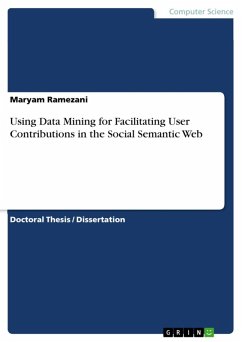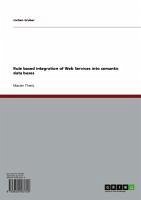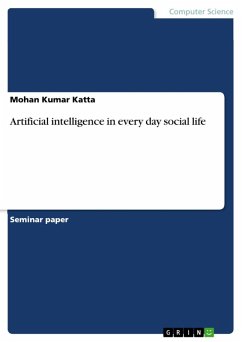
Using Data Mining for Facilitating User Contributions in the Social Semantic Web (eBook, ePUB)
Versandkostenfrei!
Sofort per Download lieferbar
Statt: 52,95 €**
39,99 €
inkl. MwSt. und vom Verlag festgesetzt.
**Preis der gedruckten Ausgabe (Broschiertes Buch)
Weitere Ausgaben:

PAYBACK Punkte
0 °P sammeln!
Doctoral Thesis / Dissertation from the year 2011 in the subject Computer Science - Internet, New Technologies, grade: 1,0, Karlsruhe Institute of Technology (KIT), language: English, abstract: Social Web applications have emerged as powerful applications for Internet users allowing them to freely contribute to the Web content, organize and share information, and utilize the collective knowledge of others for discovering new topics, resources and new friends. While social Web applications such as social tagging systems have many benefits, they also present several challenges due to their open ...
Doctoral Thesis / Dissertation from the year 2011 in the subject Computer Science - Internet, New Technologies, grade: 1,0, Karlsruhe Institute of Technology (KIT), language: English, abstract: Social Web applications have emerged as powerful applications for Internet users allowing them to freely contribute to the Web content, organize and share information, and utilize the collective knowledge of others for discovering new topics, resources and new friends. While social Web applications such as social tagging systems have many benefits, they also present several challenges due to their open and adaptive nature. The amount of user generated data can be extremely large and since there is not any controlled vocabulary or hierarchy, it can be very difficult for users to find the information that is of their interest. In addition, attackers may attempt to distort the system's adaptive behavior by inserting erroneous or misleading annotations, thus altering the way in which information is presented to legitimate users. This thesis utilizes data mining and machine learning techniques to address these problems. In particular, we design and develop recommender systems to aid the user in contributing to the Social Semantic Web. In addition, we study intelligent techniques to combat attacks against social tagging systems. In our work, we first propose a framework that maps domain properties to recommendation technologies. This framework provides a systematic approach to find the appropriate recommendation technology for addressing a given problem in a specific domain. Second, we improve existing graph-based approaches for personalized tag recommendation in folksonomies. Third, we develop machine learning algorithms for recommendation of semantic relations to support continuous ontology development in a social semanticWeb environment. Finally, we introduce a framework to analyze different types of potential attacks against social tagging systems and evaluate their impact on those systems.
Dieser Download kann aus rechtlichen Gründen nur mit Rechnungsadresse in A, B, BG, CY, CZ, D, DK, EW, E, FIN, F, GR, HR, H, IRL, I, LT, L, LR, M, NL, PL, P, R, S, SLO, SK ausgeliefert werden.













